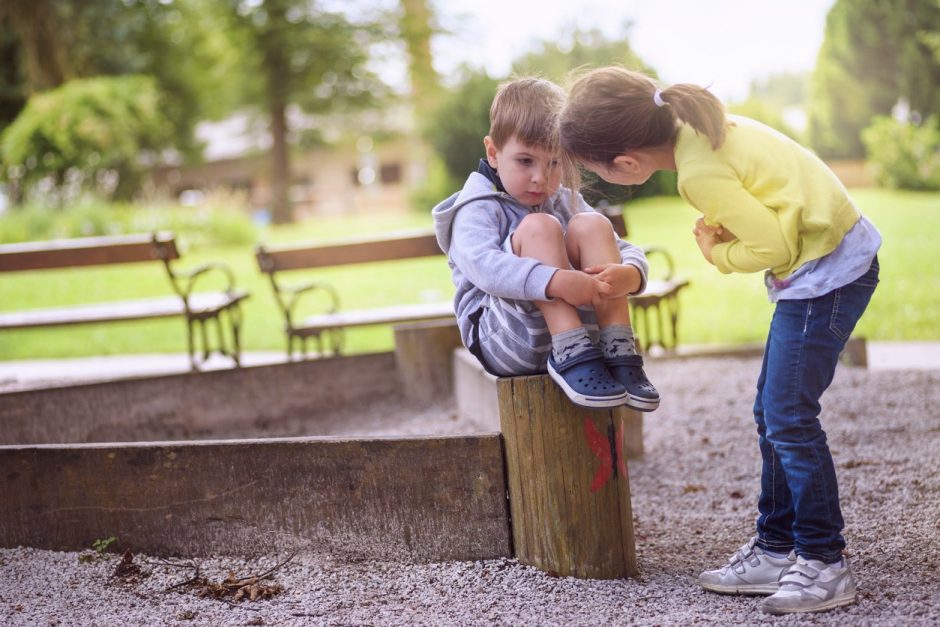Raising empathetic kids is something that all parents are capable of doing. It takes conscious efforts on the part of the parent to teach the kid how to feel and identify with the feelings of others. Every child has that capacity in them to be empathetic, but this ability has to be nurtured from an early stage in the child. Again, this requires relentless and committed effort from the parents to ensure that the kids fulfill their capacity for empathy as they grow into adults.

Here are 15 strategies that you can do daily for raising empathetic kids.
1. Talk regularly about feelings: Kids need to learn about different feelings first to understand what it is. Having regular talks about feelings will help them to learn, and understand different emotions and how best to react in such situations. Start by explaining emotions to them from books and movies, and use such words regularly in communicating with them.
2. Teach them to look at the talker always: This will help them to learn to take cues from people’s facial expressions, the color of their eyes and their voice tone, to understand the emotions that they are feeling.
3. Teach them to be kind: You have to teach the kids to react kindly to everyone at all times. Help them to show love to others. It might also involve you prompting them to do certain actions at times. “Could you share your food with David? He looks like he is hungry.”
4. Teach them selflessness: The kids should learn to think of others first, even at their inconvenience.
5. Let them know why they should care for others: Give them practical reasons to care about other’s feelings and the consequence of not caring for others. If you notice they did not show kindness to someone, correct it immediately and be firm with it.
6. Be an example: Talk is cheap. Let them see first-hand and learn from you, what it means to care for others.
7. Do not use verbs, use nouns instead: Instead of telling the kids to ‘help’ someone, tell them to be a ‘helper’. Kids are more inclined to becoming something than to do something.
8. Emphasize the good traits: When you praise a kid for a good character that they display, it helps them to internalize such character as a part of their person. Tell them, ‘you are selfless and love to share your belongings with others.’
9. Show kindness to others together: You could gather some unused toys, games and other items together in a box, or you go buy provisions and deliver it together at a less privileged family or person.
10. Let them imagine how others would feel in particular circumstances: This would give them the necessary education on identifying with other people’s feelings, and improve their empathy.
11. Emphasize the impact of being kind to others. Use practical examples. “What was David’s reaction when you gave him the food? Did you see his face when you told him the gift is his own? He was ecstatic.”
12. Add kindness to your daily routine: You can strengthen the act of kindness in someone by what they see and hear, or what they see others practicing. Adding kindness to your routine strengthens it in the kids.
13. Use more ‘we’ and less ‘me’ when talking to them: You have to teach the kids the basics of teamwork, and the ability to think less about themselves. It helps them to learn to put others in perspective when thinking about how to do things. So, instead of ‘what will you do’ or ‘what should I do,’ ask them ‘what do we do?’
14. Ask about their friends a lot: This gives them a sense of thinking that you care about others and not just them. And it helps to shape their way of thinking also.
15. Teach the kids to save and give from their allowances: When you give your kids allowances, make them know that they have to keep a portion of it which they will give to charity and another portion which they will save. Go together with them to offer the said portion to their preferred charity.
Conclusion
Raising your kids to become compassionate towards others is not an easy task. But it is also not unachievable. Every parent wants to train their kids to grow up into responsible adults, well, this is part of that training. It takes effort, but it is well worth it.
Author’s Bio
Tobias Foster is a journalist, editor, and writer with 5 years of working experience in providing assignment writing service UK. He’s an ambitious person and a master at what he does, with a wealth of knowledge in different fields such as marketing, business, and philosophy.
Read More:

